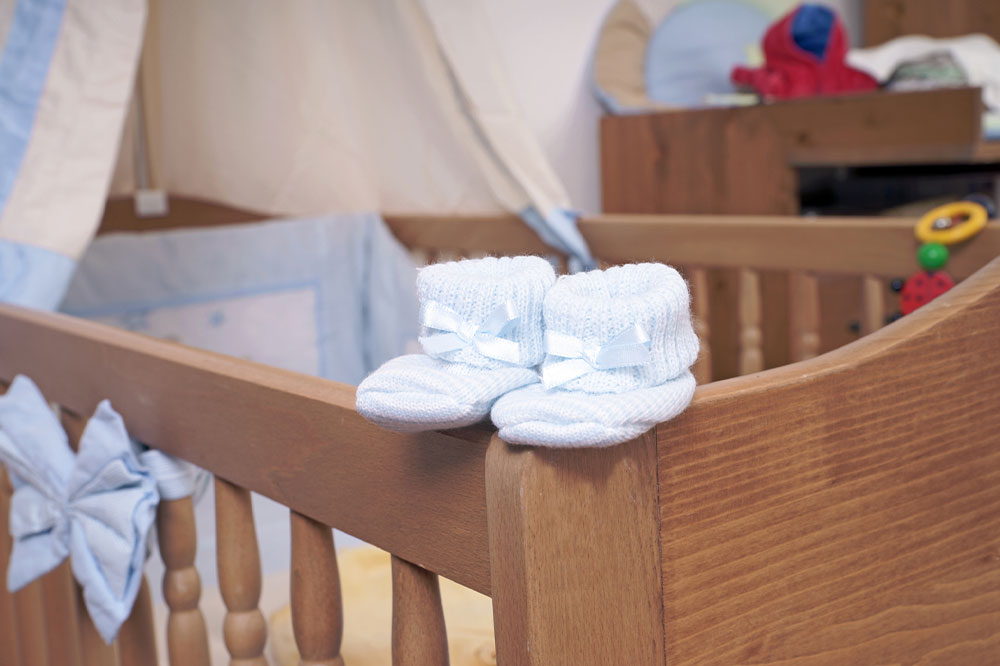5 baby products parents should never buy

As a parent, you want to be extra careful about everything you buy for your child. However, it can be difficult to keep track of all the items on your shopping list. While there are plenty of products available for your baby’s comfort, safety, and entertainment, it’s important to remember that even seemingly harmless items can pose a danger. This article highlights 5 products parents should avoid to keep their babies safe.
5 baby products that parents should avoid for their kids
Some products designed for kids could be faulty and fall short of safety requirements set by the government. Therefore, parents must practice extra caution when buying products for their babies. Here is our list of 5 baby products that represent a serious hazard to the newborn’s safety.
Tents and sleep positioners
Cot tents are meant to prevent children from climbing out of cribs. However, they can also be dangerous and unstable. The baby’s constant pulling and prodding can result in the tearing of the mesh, which compromises the stability of the cot tent. Contrarily, sleep positioners raise the risk of suffocation and other dangers, which could be dangerous for young children. According to the pediatrician, sleep positioners have been linked to several deaths that have been documented in the last few years.
Humidifiers
Humidifiers purify the air and increase the moisture in the room. They help the baby sleep better. However, keep the humidifier and the cord safely out of the baby’s reach because they can get dangerously hot to the touch. If not cleaned thoroughly, warm- and cool-mist humidifiers can potentially develop mold.
Lotions and body creams with dangerous chemicals
Few baby products, while frequently used by many parents, have been reported to have several chemicals that can harm the child’s health.
Baby walkers
Baby walkers are helpful for babies who are learning to stand and walk. However, they can be hazardous in homes with stairs, as babies can accidentally fall down the stairs if they lose their balance while in the walker. It’s important to use these products only in apartments and homes without stairs or stories to ensure the safety of the baby.
Car seat accessories and toys
It would seem like a godsend to have small mirrors and stuffed animals fastened to the front of the car to occupy the child on long drives. However, according to car seat specialists, few of these accessories are shaky and dangerous.
Things to consider before buying baby products
The immune system of a newborn is incredibly delicate and sensitive. New parents struggle to locate the ideal products for their infants. Finding the ideal items can be challenging for a parent who wants to give their child nothing but the best. To help, here are a few outlined important steps you need to take before purchasing anything for your baby’s sensitive skin.
Read the description properly
As a first-time parent, shopping for baby care products online can be a daunting task. With so many products claiming to be the “best for baby,” it can be difficult to choose just one. Don’t be fooled by attractive packaging – take the time to carefully read and understand the product descriptions before making a purchase.
Examine for hazardous chemicals
Some chemicals might be too harsh for your newborn’s sensitive skin. Look for signs of allergies when you use a new lotion or other baby product. If you’ve already discontinued a product, look for any components that might be repeated in the new one and conduct some research to prevent adverse reactions. Never give your child a product that contains untested chemicals. Check with your pediatrician before purchasing any product so that you are not lured in by the appeal of huge brands.
Examine the product’s effectiveness
Ascertain the product’s effectiveness by checking if the products have been tested and approved by pediatricians. Any item authorized by a physician is normally safe to use. If you’re unsure about a company’s claims, check parent reviews for honest reviews of the products.
Use products with no synthetic chemicals
Scents used in various products could irritate your child’s skin. Few modern skincare products use dangerous synthetic aromas to cover up the smell of the chemicals they contain, which is risky for a child’s health. When you use scented products on your baby, the fragrance may linger for hours and harm the respiratory system.
Search for natural products
Many chemically rich products may tempt you with fruity, floral, or other alluring fragrances and textures, but it’s crucial to be wary. Naturally, selecting natural products is a prudent move. But not all baby products are as natural as they claim to be. Look for organic products that are devoid of byproducts, petroleum, and preservatives.
Prefer quality over quantity
Baby-specific products are undoubtedly more expensive, but they guarantee that your child’s health is not compromised. Choose the right product and look at the indicators on the label rather than purchasing items in bulk or at a discount. Purchasing in bulk might occasionally put you at risk of using expired or low-quality goods, which is risky and a waste of money. You should never compromise on quality while purchasing baby items.
As a new parent, juggling multiple responsibilities can make even small decisions feel overwhelming. It’s important to seek guidance from your doctor when trying new things for your baby. Consulting with a doctor can be helpful as they can suggest products that are best suited for your infant.
It’s important to know that simply buying things from the market may not ensure the best childhood for your child. It’s crucial to be aware of what products are beneficial and which ones are not. Doing so can enhance your parenting skills and promote your child’s healthy growth. Consider purchasing high-quality baby products to create a joyful and memorable childhood for your little one.


